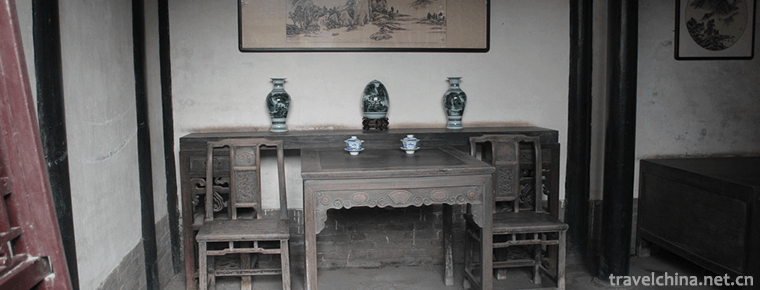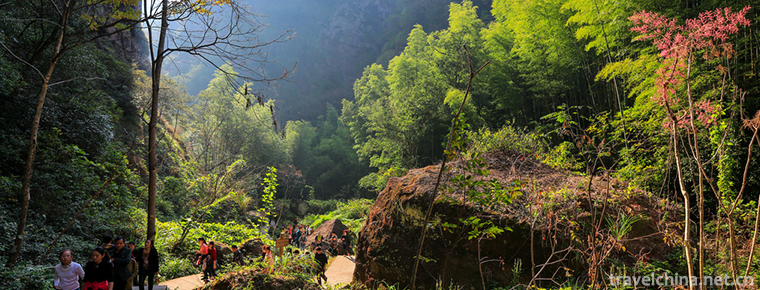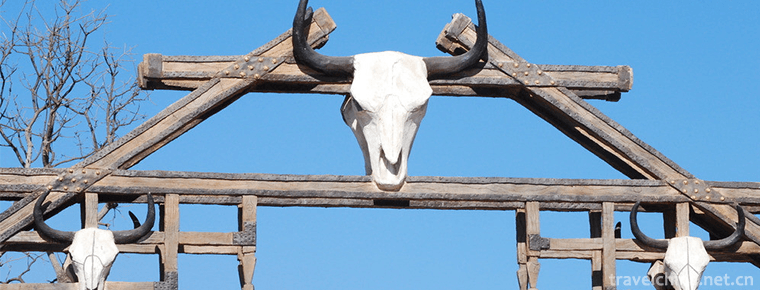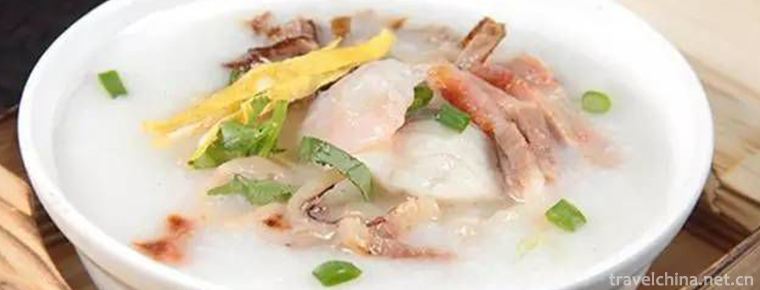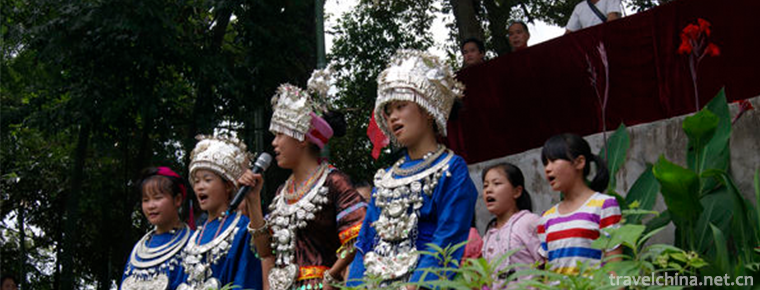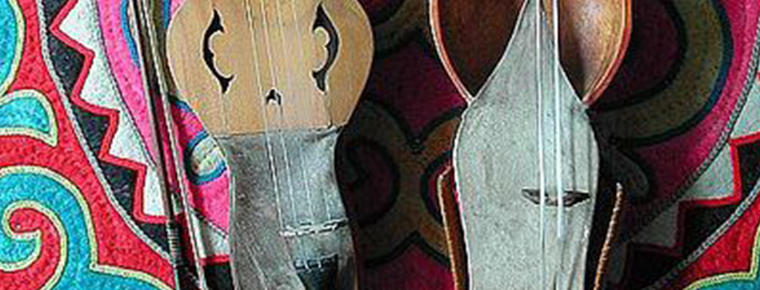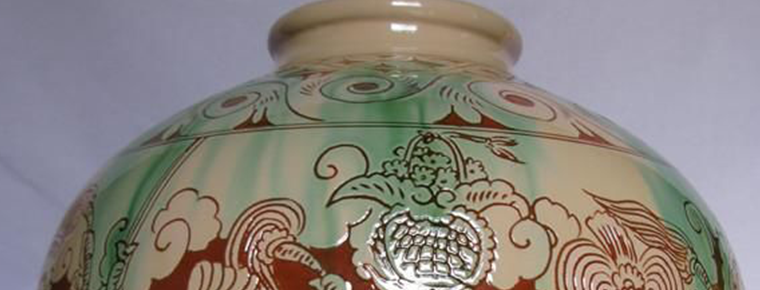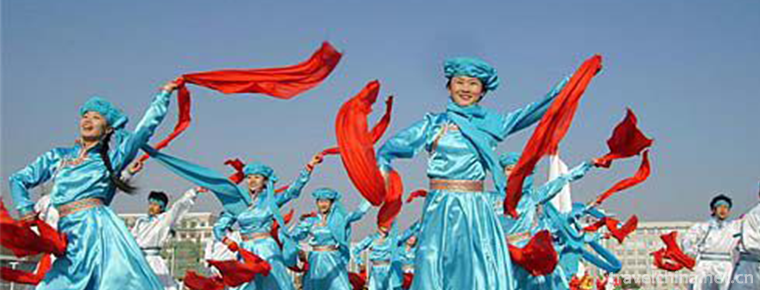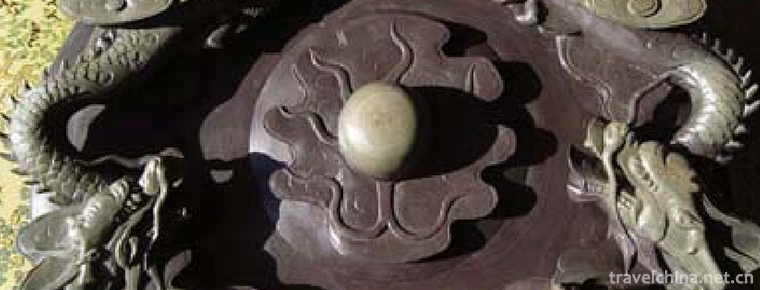Youyang Ancient Songs
Youyang Ancient Songs
Youyang Ancient Songs are the words chanted or chanted by sorcerers in the activities of ancestor worship, praying for high yield, exorcising evil spirits and returning vows. The Youyang Tujia and Miao Autonomous County of Chongqing, which is located at the junction of Hunan, Hubei, Chongqing and Guizhou, is the product of the continuation and evolution of the ancient culture of the South in the Wuling Mountains.
On May 23, 2011, Youyang Ancient Songs declared by Youyang Tujia and Miao Autonomous County of Chongqing City were approved by the State Council as the third batch of national intangible cultural heritage lists.
historical origin
Youyang Ancient Song (i.e. Wu Nuo Poetry) belongs to the category of witch culture. It is now mainly spread in Youyang Tujia and Miao Autonomous County of Chongqing, which is located at the junction of Hunan, Hubei, Chongqing and Guizhou. It is the product of the continuation and evolution of the ancient culture of the South in Wuling Mountains. It is also the legal activity of Tujia Wizard Nuo Master (Tima) - worship of ancestors, pray for plentiful production and exorcise evil spirits. The rhetoric recited or sung in the activities of vow-returning has a sophisticated style. It has a history of about 6,000 years. Its origin can be traced back to the witchcraft songs of ancient times. It is a collection of natural and social knowledge accumulated by the working people for a long time.
Words chanted or chanted by Nuo sorcerers in ancestor worship, praying for plentiful harvest and exorcising evil spirits are spread in Youyang Tujia and Miao Autonomous County. The origin of these words can be traced back to ancient times, and they are a collection of natural and social knowledge accumulated by the working people for a long time. Youyang Ancient Songs have two free verses and two verses and one verse, four verses and one verse rhyming metrical style, mostly four-character and seven-character sentence pattern, interspersed and connected, there are two kinds of arias, high and flat.
primary coverage
Words chanted or chanted by Nuo sorcerers in ancestor worship, praying for plentiful harvest and exorcising evil spirits are spread in Youyang Tujia and Miao Autonomous County. The origin of these words can be traced back to ancient times, and they are a collection of natural and social knowledge accumulated by the working people for a long time. Youyang Ancient Songs have two free verses and two verses and one verse, four verses and one verse rhyming metrical style, mostly four-character and seven-character sentence pattern, interspersed and connected, there are two kinds of arias, high and flat.
Youyang Ancient Songs have two free verses and two metrical verses at the end of one and four sentences, most of which are four-character and seven-character sentences, interlaced and connected. There are two kinds of singing, high-pitched and flat-pitched, quite charming. The chanting content depends on the nature of the ceremonies presided over. There are chapters such as divine dancing and inviting teachers, building bridges, inviting souls, hiding, shading, building family money first, making promises, sending Maoshan to God, etc. They are handed down orally, with fixed words and few improvisations. Youyang Ancient Songs can be divided into divine and living categories. Its representative works are: hymn "Qitian is the King of Qi in Dongyue", custom poem "Hiding in the Shadow", rhetoric poem "Four Seasons of the Year" and so on.
artistic characteristics
Thematic form
Judging from the style of Youyang Ancient Songs, there are two free verses and two metrical verses at the end of one and four sentences, most of which are four-character and seven-character sentences, interlaced and connected. There are two kinds of singing tunes: high-pitched and flat-pitched.
Content characteristics
1. The content is determined by the nature of the activity, and there are many chapters.
2. Fixed content and literary heritage;
3. It can be divided into divine and living categories.
4. The representative works include hymns, custom poems and final poems.
5. Including historical stories, there is also a breath of life.
6. Based on nature worship, ancestor worship and ghost worship.
7. Sacrifice verses of mixed Confucianism, Taoism and Buddhism.
The content of Youyang Ancient Song depends on the nature of the ceremony. It mainly consists of chapters such as divine jumping, inviting teachers, building bridges, inviting souls, hiding, falling clouds, building money first, making promises, sending Maoshan, sending gods, etc. It is handed down from mouth to mouth with fixed words. Youyang Wu Nuo poems are divided into divine and living categories. Its representative works are: hymn "Qitian in Dongyue is the King of Qi"; custom poems "Hide in the Shadow", "Ming Luo Huibing"; and rhetoric poems "Four Seasons of the Year". Including human origins, ethnic migration and heroic legends; and also breath of life, such as family activities of exorcising evil spirits and vows, including Shenwen Sheng, Yingbing bridge, water kitchen stove, hanging to dispel evil spirits, restoring God and restoring fragrance, sweeping and kicking knives and other procedural chapters. Wunuo poems are based on nature worship, ancestor worship and ghost and God worship, mixed with sacrificial verses of Confucianism, Taoism and Buddhism.
Literary Connotation
Witchcraft is rich in color (contact with Tima culture); 2) as the transmission of the soul of the deceased; 3) as a bridge for ordinary people to express their prayers.
Current situation of inheritance
Youyang Ancient Songs, carrying ancient myths, are the first-hand valuable materials for the study of the customs and customs of the Chinese nation and the development of literature and art. With the change of society and the innovation of popular ideas, the activities of folk rituals are gradually decreasing, and there are few Timas engaged in this profession. Youyang Ancient Songs are on the verge of extinction and need to be rescued and protected urgently.
The State Council has promulgated three national intangible cultural heritage protection catalogues, Youyang Hand-waving Dance, Youyang Folk Song and Youyang Ancient Song. All the pictures and videos are reported by the Cultural Museum to the county, city and State Council step by step to declare success, but the declared funds for each project are pitiful (20,000 yuan, making a standard). The filing videos are not enough. At present, we still owe 45,000 yuan for the filing materials of Youyang Ancient Songs, which needs to be solved by the county government. Chongqing has 39 national intangible cultural heritage protection lists, ranking second in 40 districts and counties.
Inheritance Significance
Youyang Ancient Songs have been handed down from mouth to mouth, with fixed diction and less improvisation. They preserve a large number of original information and artistic factors. They are an ancient and magnificent treasure house of folk literature. As the third batch of "non-heritage" at the national level, it will be protected and play a role in promoting the spread of regional culture and traditional culture.
On May 18, 2010, the Ministry of Culture of China announced the third batch of national intangible cultural heritage list of recommended projects (new entries). The "Youyang Ancient Songs" declared by Youyang Tujia and Miao Autonomous County of Chongqing City were selected as intangible cultural heritage in the category of folk literature projects.

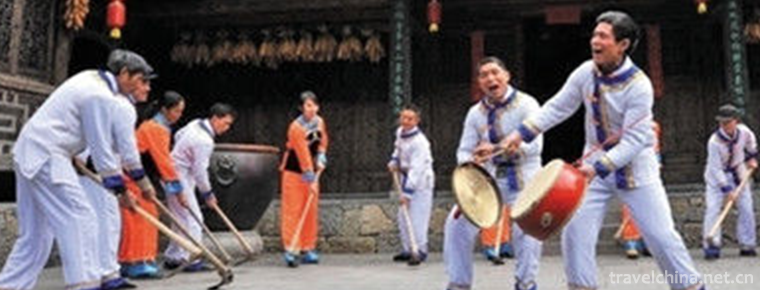
-
Zhou Enlais Hometown Scenic Spot
Zhou Enlai's hometown scenic spot is located in Huai'an City, Jiangsu Province, a famous historical and cultural city in China. It is a national 5A-level tourist attraction..
Views: 192 Time 2018-12-06 -
Taining World Geological Park Fujian Province
Fujian Taining World Geological Park, located in Taining County, Sanming City, northwest Fujian Province, covers an area of 492.5 square kilometers, of which Danxia landform.
Views: 148 Time 2019-02-13 -
Ancient Town of Yi Nationality
The ancient town of Yi people is located in the north of Yongan Avenue, the west of Sun Li Park, the east of Longchuan River and the south of Chuda Expressway in Chuxiong Economic and Technological De.
Views: 204 Time 2019-03-04 -
Quail gruel
Ingredients: Quail, 100 grams of Japonica rice, 20 grams of red beans, 3 pieces of ginger, 10 grams of cooking wine, proper amount of salt, monosodium glutamate, pepper and sesame oil..
Views: 279 Time 2019-03-24 -
Forty eight Zhai Song Festival
The forty-eighth Village Song Festival is a northern Dong dialect Song Festival in Tianzhu County, Guizhou Province, China. It is a traditional national festival featuring Dong.
Views: 352 Time 2019-05-01 -
Kazakh Kubuzi
Kubuzi is the representative of Kazakh's playing instruments. Chinese is also translated into Hobbes, Hobbes, Kibbs and so on. Kubuzi structure is simple and beautiful, used for solo, ensemble or acco.
Views: 108 Time 2019-05-02 -
Firing Techniques of Jieshou Coloured Pottery
The firing technique of Jieshou colored pottery, the local traditional handicraft technique of Jieshou City, Anhui Province, is one of the national intangible cultural heritages..
Views: 105 Time 2019-05-06 -
Andai Dance of Mongolian Nationality
Andai Dance originated from the Kulun Banner. According to textual research, Andai Dance was formed in the late Ming and early Qing Dynasty. At that time, the Kulun system was "the unity of polit.
Views: 147 Time 2019-06-03 -
Inkstone Platform Making Skills
Inkstone production skills, Liaoning Province Benxi City, Ningxia Hui Autonomous Region Yinchuan City, Hebei Province Yi County, Shanxi Province Xinjiang County, Gansu Province Zhuoni County, Min Coun.
Views: 88 Time 2019-07-10 -
A city with a fire by one Cold thinking behind Ding Zhen hot
With the popularity of microblogging for nearly seven months, the popularity of microblogging has been created for a long time. At the same time, the hometown of Ding Zhen, Litang County, Ganzi Tibetan Autonomous Prefecture, also ushered in several times the search volume and real gold and silver tourism orders..
Views: 74 Time 2020-12-07 -
medical and health work
By the end of 2019, there are 2139 medical and health institutions with 19943 beds. At the end of the year, there were 14351 technical personnel in hospitals and health centers, including 4839 licensed doctors and 6767 registered nurses. The numbe.
Views: 346 Time 2020-12-18 -
Yibin scenic spot
South Sichuan Bamboo Sea is a national AAAA tourist attraction, covering an area of 120 square kilometers and a core scenic area of 44 square kilometers. There are eight main scenic areas, two major scenic spots and 134 scenic spots. In 2009, it was se.
Views: 363 Time 2020-12-18
